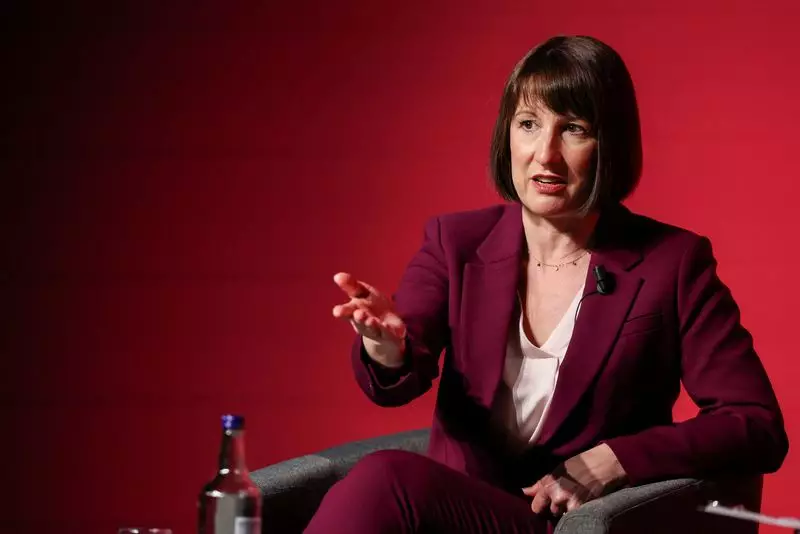As the United Kingdom navigates through a period of economic turbulence, the demand for systematic reforms in public finances has become increasingly pressing. Rachel Reeves, the newly appointed finance minister, faces a critical juncture as she gears up for her first budget announcement slated for October 30. The Institute for Fiscal Studies (IFS), a respected think tank, warns that Reeves may need to impose a significant tax increase of approximately £25 billion ($33 billion) to stabilize essential public services, including police and prison systems. With the Labour Party having pledged only £9 billion in tax increases during its election campaign, the necessity for more substantial fiscal adjustments signals a potential shift in economic strategy.
The projected £25 billion tax hike represents nearly 1% of the national income, a figure that is almost double the tax increases seen after substantial government transitions in previous years, notably in 2010 and 1997. This raises critical questions about the Labour Party’s long-term fiscal strategy and the extent to which it can fulfill its electoral promises while simultaneously addressing the alarming state of public finances that Reeves has described as worse than anticipated. The challenge lies not only in finding the right balance between taxation and public investment but also in maintaining the goodwill of the electorate amid economic uncertainty.
The Labour victory in July brought with it a wave of optimism and potential for transformative change. However, that optimism has begun to wane in light of Reeves’ acknowledgment of the precarious financial situation. Prime Minister Keir Starmer’s diminishing popularity has been, at least in part, linked to unpopular decisions such as cuts to winter fuel subsidies for pensioners, indicating that the government must tread carefully as it implements fiscal policies that may be unpopular with constituents. The political ramifications of any austerity measures will loom large as the Chancellor seeks to navigate this minefield.
In response to these challenges, Reeves has indicated a shift in the department’s budgetary rules, aiming for a balanced budget that excludes investment spending. This approach would be a notable departure from the previous allowance for a 3% overall deficit, raising questions about sustainability in the long term. While the revised framework could theoretically accommodate an additional £50 billion in borrowing, experts have flagged concerns regarding the implications of a looser fiscal policy. Benjamin Nabarro, chief UK economist at Citi, articulated apprehensions that potential rule adjustments might spook foreign bond investors, who are still reeling from the market disruptions caused by former Prime Minister Liz Truss’ economic policies.
The market’s reaction signals a broader wariness among investors, particularly highlighted by the widening yield premium on 30-year British government bonds compared to their German counterparts. This financial tension is rooted in the collective memory of a market in disarray just two years ago, which has led to a cautious approach among international bond investors. The impetus is clear: if the government desires to reassure the gilt markets and maintain investor confidence, any additional borrowing must be rigorously regulated and strategically justified.
In her recent statements, Reeves has emphasized the necessity of implementing “guardrails” around any new borrowing initiatives. This indicates an understanding of the expectations from both the electorate and investors regarding fiscal discipline. The focus on establishing strong oversight mechanisms will be crucial in legitimizing any alterations to borrowing strategies and ensuring that the financial system does not devolve into unrestrained spending.
As Rachel Reeves prepares to deliver a budget aimed at restoring public services and addressing economic shortfalls, the fine line she must walk becomes increasingly evident. The weight of expectations is heavy, and the outcome of her fiscal policies could significantly shape the landscape of British politics and economics in the years to come. Balancing the need for increased taxation with public sentiment, addressing investor concerns, and strategically managing the country’s debt will define her tenure as finance minister. The upcoming budget is not just a financial document; it represents a pivotal moment that could either reinforce the government’s commitment to public welfare or catalyze further discontent among the populace.

